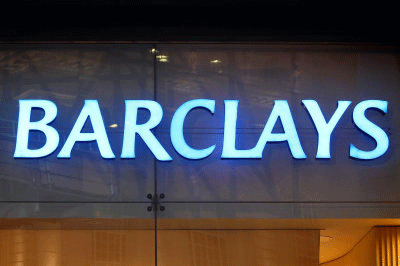Barclays to stop over the counter cash withdrawals at Post Offices
The bank has pledged to not close branches in remote areas where it is the last bank in town
8th October 2019 11:23
by Stephen Little from interactive investor
The bank has pledged to not close branches in remote areas where it is the last bank in town

In another blow to rural and elderly customers already hit by bank closures, Barclays says it stopping over the counter cash withdrawals at Post Offices from the beginning of next year.
Barclays says it “remains committed” to the Post Office network, but while customers and businesses can still pay in and check their balance, over the counter cash withdrawals will end from January 2020.
Customers wishing to make a withdrawal by cheque will still be able to do this if they arrange it beforehand.
The decision by Barclays will reduce then number of places their customers can get cash, forcing them to use cash machines or find an alternative bank.
David Clarke, head of policy at campaign group Positive Money, says: “The news that Barclays is stopping savers from withdrawing cash at Post Office branches is a blow to millions of the bank’s customers who rely on cash in their day-to-day lives.
“With bank branches and free-to-use ATMs closing at an unprecedented rate, over-the-counter Post Office withdrawals had been seen as a back-up option, but that view is no longer viable."
Rural areas have been hit by a raft of bank branch closures in recent years, while cash machines are also closing at a rate of 250 a month as operators shut unprofitable ones.
This has left towns and villages without access to basic banking services, hitting the elderly and the disabled particularly hard.
Banks often justify branch closures by pointing toward partnerships with the 11,000 Post Offices across the UK.
While this provides people with the opportunity to do their day-to-day banking, post offices only offer basic banking services, such as cash withdrawals, business deposits and balance enquiries.
A spokesperson from the Payment Systems Regulator says: “We are concerned about the impact this will have, and we will be closely monitoring the steps Barclays plan to take to make sure there are suitable alternatives for its customers to access their cash - especially those who rely on cash or who live in rural areas.”
The Post Office has confirmed that the rest of the UK’s major banks will continue to offer full banking services to their customers through the Post Office.
Pledge to save banks
Barclays has pledged to not close any branches in remote areas or where it is the last bank in town for two years.
The bank says that over 100 branches will be ring-fenced and remain open until at least October 2021.
Banks are shutting down branches at an alarming rate, with 3,303 bank closures between January 2015 and August 2019 – around 34% of the network, according consumer group Which?.
The closures were primarily driven by the Big Four banks, with RBS Group cutting its network by 56%.
Earlier this year, Nationwide pledged to keep its last branch in any town or city open until at least May 2021.
Mr Clarke says: “The major banks cannot be relied upon to protect customers’ access to cash, and industry commitments - such as Barclay’s pledge to keep open a small number of branches for two years - are piecemeal and inadequate.
“The only solution is for the government to introduce legislation that guarantees consumers’ ability to use cash for as long as they need it.”
Adam Rowse, managing director of branch-based banking at Barclays, says: “By maintaining last in town or remote branches over the next two years, and working with the community, we hope to increase demand and keep these branches viable.”
Barclays is also introducing a cashback scheme enabling customers to withdraw cash at businesses in remote towns and areas where there is no branch or ATM.
Branches Barclays has pledged to protect
Last In Town branches (62)
Alderley Edge, Bargoed, Barnard Castle, Barnoldswick, Bedale, Bentham, Biggin Hill, Bilbrook, Builth Wells, Burnham-on-Crouch, Cadishead, Carnforth, Chalfont St. Peter, Cockermouth, Cuffley, Drayton Norwich, Dunmow, Esher, Flitwick, Framlingham, Guiseley, Haltwhistle, Harleston, Haxby, Hemsworth, Heywood (Church St), Histon, Holmes Chapel, Hoyland Nether, Keswick, Kidsgrove, Kirkby Stephen, Knowle, Leiston, Leyburn, Llandeilo, Llangollen, Manningtree, Middleton-in-Teesdale, Oundle, Pickering, Radlett, Risca, Saltburn by the Sea, Seahouses, Shenfield, South Woodham Ferrers, Southwick, Southwold, St Ives, Stanhope, Tredegar, Treorchy, Wadebridge, Watton, West Mersea, Whickham, Woburn Sands, Wombourne, Wroxham, Yarm, Ystrad Mynach.
Remote branch (43)
Bideford, Brecon, Brigg, Caernarfon, Camborne, Chipping Norton, Cranleigh, Daventry, Deal, Devizes, Driffield, Easingwold, Falmouth, Gainsborough, Heathfield, Helmsley, Helston, Horncastle, Kirkby Lonsdale, Lampeter, Launceston, Leek, Malton, Market Drayton, Mildenhall, Monmouth, Pocklington, Porthmadog, Prudhoe, Pwllheli, Richmond North Yorks, Settle, Shaftesbury, Sheerness, Sleaford, Stow-on-the-Wold, Tenby, Thirsk, Towcester, Ulverston, Welshpool, Whitby, Workington.
This article was originally published in our sister magazine Moneywise, which ceased publication in August 2020.
These articles are provided for information purposes only. Occasionally, an opinion about whether to buy or sell a specific investment may be provided by third parties. The content is not intended to be a personal recommendation to buy or sell any financial instrument or product, or to adopt any investment strategy as it is not provided based on an assessment of your investing knowledge and experience, your financial situation or your investment objectives. The value of your investments, and the income derived from them, may go down as well as up. You may not get back all the money that you invest. The investments referred to in this article may not be suitable for all investors, and if in doubt, an investor should seek advice from a qualified investment adviser.
Full performance can be found on the company or index summary page on the interactive investor website. Simply click on the company's or index name highlighted in the article.